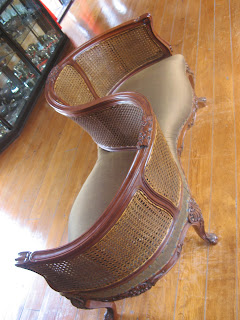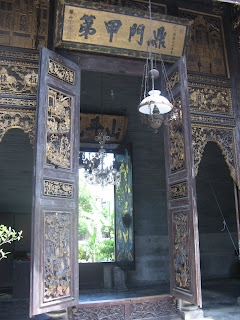Last night, after the morning exam, I was trying to dig out a worthwatching movie from my almost-50-g movie collection. Unfortunately most of the movies are crime or action themed which are so boring that you wouldn't expect much shock or taste after you watch them. But luckily enough, I found I've got a copy of a Passage to India. The exotic name itself was persuasive enough for me to denote my night into this piece of motion picture.
I never work out how to write a proper movie review. How to handle the ratio between the storyline and my own opinion? How much depth should I get into the movie story especially most the readers have not watched the movies themselves? This thinkings are, very often, the obstacles of my production of movie reviews. And often I go into exploring the historical background of the movies, which could be inappropriate in a movie review itself.
I am afraid this movie review will fall into a similar pattern, less analyzing the movie itself, more of telling historical stories. For though who are not interested in stories, this is perhaps not your cup of tea.
This movie, A Passage to India, is based on the story of E.M. Forster, whom I will talk about later. The story is based in British India, where back then English were the rulers and Native Indians were second-class. A local Indian doctor, Dr Aziz, a warm and friendly father-of-two, 'admired' the English and dreamed of becoming friends of them. Meanwhile, two English ladies, Adela and Mrs Moore, fob (Fresh-off-the-boat), were eager to mean some Indians to know more about the country. After their first met, Dr Aziz arranged a picnic with the two English ladies on a hill with some mysteries caves. The trip ended up with Adela screaming and running down out of the cave with Dr Aziz standing there without knowing what happened. Then Dr Aziz was accused of harassing Adela. The trial attracted petitions and riots from Indian who were questioning the justice. In court, Adela finally realized what happened to her was a combination of echos and illusions so she withdrew her accuse towards Dr Aziz.
The book was published in 1924, after the WWI, when Gandhi's Indian independence movement just became well-known-ed. The author showed his sympathy toward this oriental country, where racism, discrimination and suppression were common.
I once read an article talking about the virtue of British Empire. It said that the voices of freedom and anti-colonization were raised together with the expansion of the empire. The voices, however, were barely suppressed by the authority and sometimes even became mainstream. These voices made Great Britain the first European countries abandoning black slavery. However it should be acknowledged that the independent of India is not a result of the mercy of colonizers. It is the result of struggling of Indian people. (As it was stated in my high school history text book.)
What made me sad in the movie, was not the segregation between Indians and British. It was the segregation between Indians and Indians that shocked me. When there was a riot on street, it was the Indian policemen who beat up Indian protesters. When Dr Aziz was invited to visit the British Club by Mrs Moore, he said 'no Indians are allowed'. Then we found the Indian guardians standing in the club, judging the visitors by their colour.
Anyway now it's 100 years over. And I am visiting India in about three weeks. I am expecting to see a new modern India with its friendly people.
Now it's time to talk about the author. E.M. Forster, the author of this novel, was also the author of
A Room with A View and
Howards End. The author also wrote a novel, published after his death,
Maurice. While the former two were about traditional English middle-class lives, the latter one, Maurice, was about a forbidden homosexual love between two Cambridge students and a working class gardener. Forster himself was homosexual. He stopped writing heterosexual-themed novels after he had a relationship with a police officer, which was quite irony because homosexual was illegal back then. This story was published in The Australian last week.

























































